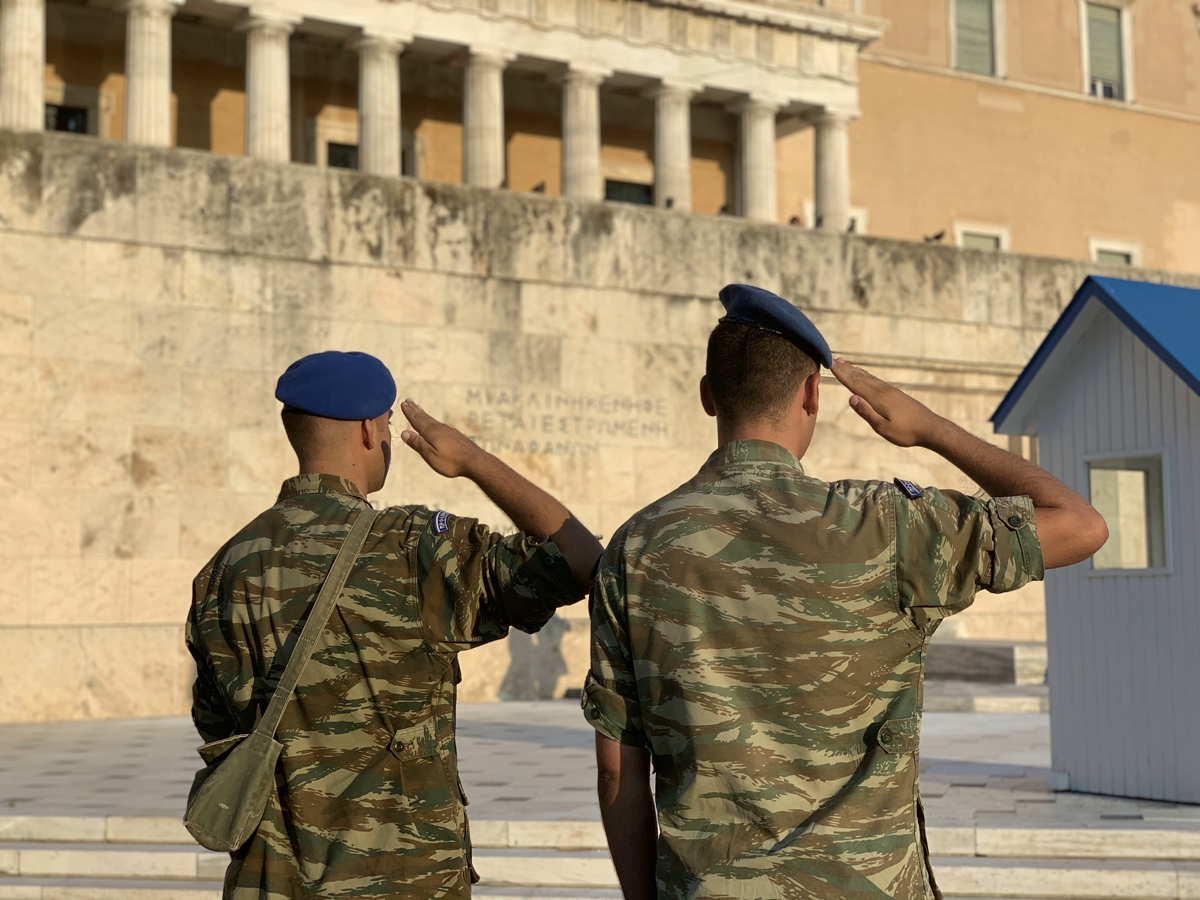Oxi Day commemorated on the 28th of October each year, is one of the proudest National Holidays of Greece, highlighting the important role the country played in WWII.
On this day in 1940, Greece’s Prime Minister Ioannis Metaxas denied Benito Mussolini’s request to allow Italian troops to cross the border into Greece. He responded to the Italian ultimatum in French, “Alors, c’est la gueree!” meaning “Then it is War!”
In the days following, the word of Metaxas’ denial had spread around Greece’s capital and the Greek population took to the streets shouting “Oxi!”. The decision made by Metaxas on the 28th of October 1940, is commemorated each year as a day that represents heroism, bravery, and solidarity for millions of Greeks all around the world.
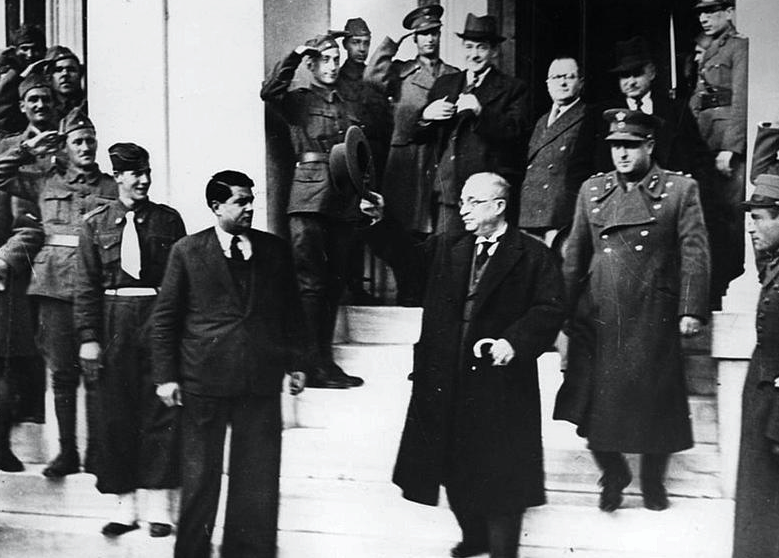
What Happened On This Day In History
The “No” of Metaxas expressed the feelings of all Greeks, echoed in the streets and throughout the land – as they yelled “No” to fascism, “No” to occupation. The Greek troops, skilled in fighting in this rough and mountainous territory, succeeded in pushing them back.
Many historians worldwide believe that Greece’s bravery may have changed the course of the war. It was ultimately necessary for the Germans to occupy Greece, which diverted their resources, and delayed their invasion of Russia, which led to their eventual defeat.
Greece’s bravery was recognised by allies and enemies alike.
People like the American president Franklin D. Roosevelt, the British statesman Winston Churchill, Joseph Stalin, and Charles de Gaul praised the Greek army as well.
“Hence we will not say that Greeks fight like heroes, but that heroes fight like Greeks” – Winston Churchill
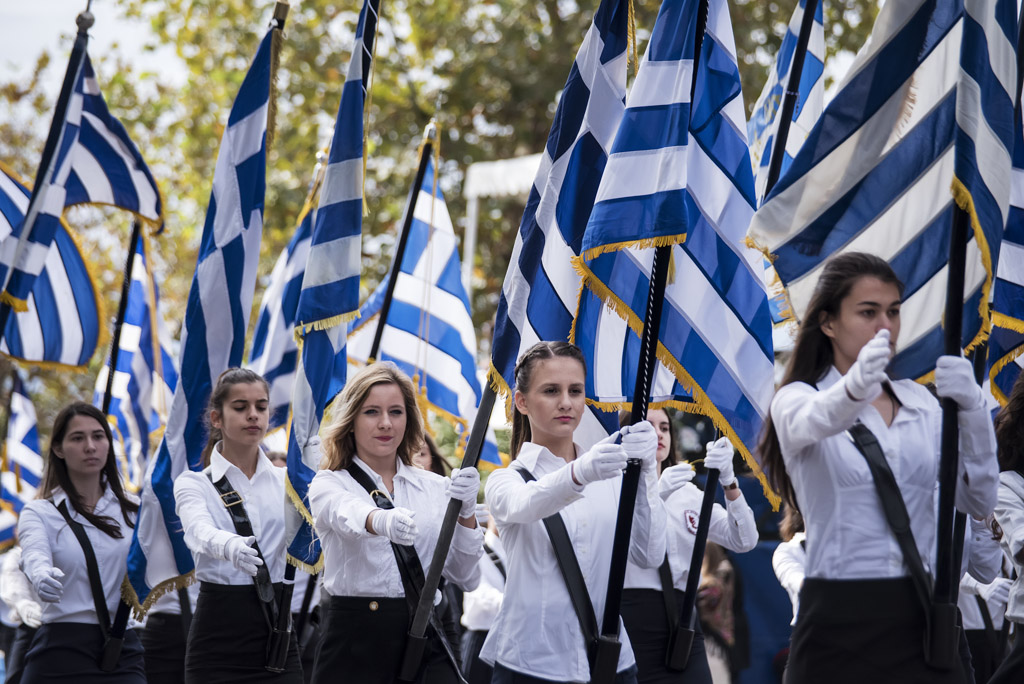
Traditions for OXI Day In Greece
On this day in Greece, most public buildings, homes and streets are adorned with Greek flags on balconies, doors and windows. You will see parades and other festivities taking place throughout the country. It is a national holiday, which means that everything is closed, with the exception of cafes and restaurants.
The October 28th holiday is also celebrated by Greeks around the world; parades and festivities take place internationally including major cities in the USA, Canada, UK, and Australia.
How do Greeks celebrate their national anniversary?
In schools, pupils recite poems, sing songs or play scenes from the Greek-Italian war wearing costumes of the time. The school teachers usually talk about Greeks’ heroism at the war.
On the anniversary day, schoolchildren parade on the main street of their city, island, or village, as they march synchronously along with military music. Pupils’ parents and many people watch the parade, waving small flags and applauding. The best student of each school holds the Greek flag in the parade and is called simeofóros ‘the flag-bearer’.
There are also cultural groups, with each region of Greece wearing its own traditional costumes, and performing their music and dances.
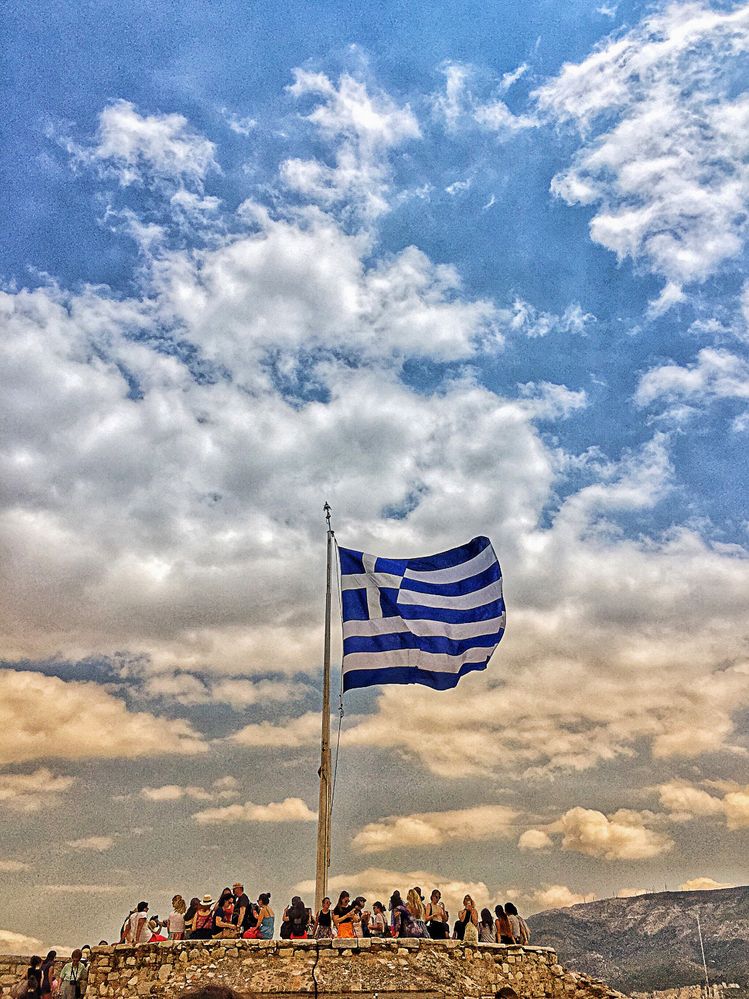
Then the armed services of Greece parade. The military cadets in dress uniform march, and also all of the special units. In Thessaloniki, boats from the navy come to the harbour. The tanks of the army fill the surrounding streets and join the military parade. Skilled air force pilots fly in precise formations overhead, and military helicopters also.
This is also the time that Greeks honour the bravery of all the emergency services and rescue teams, the mountain rescue, firefighters, coast guard, first responders, and others that dedicate their lives to the safety and protection of others.
Before the parade, they lay a wreath of laurel onto the monument or square of the municipality or village they live in.
After the parades, families, and friends get together and many times eat out in a tavern. This is a time for a big lunch or a festive afternoon with friends in a traditional taverna.
Where are the biggest parades?
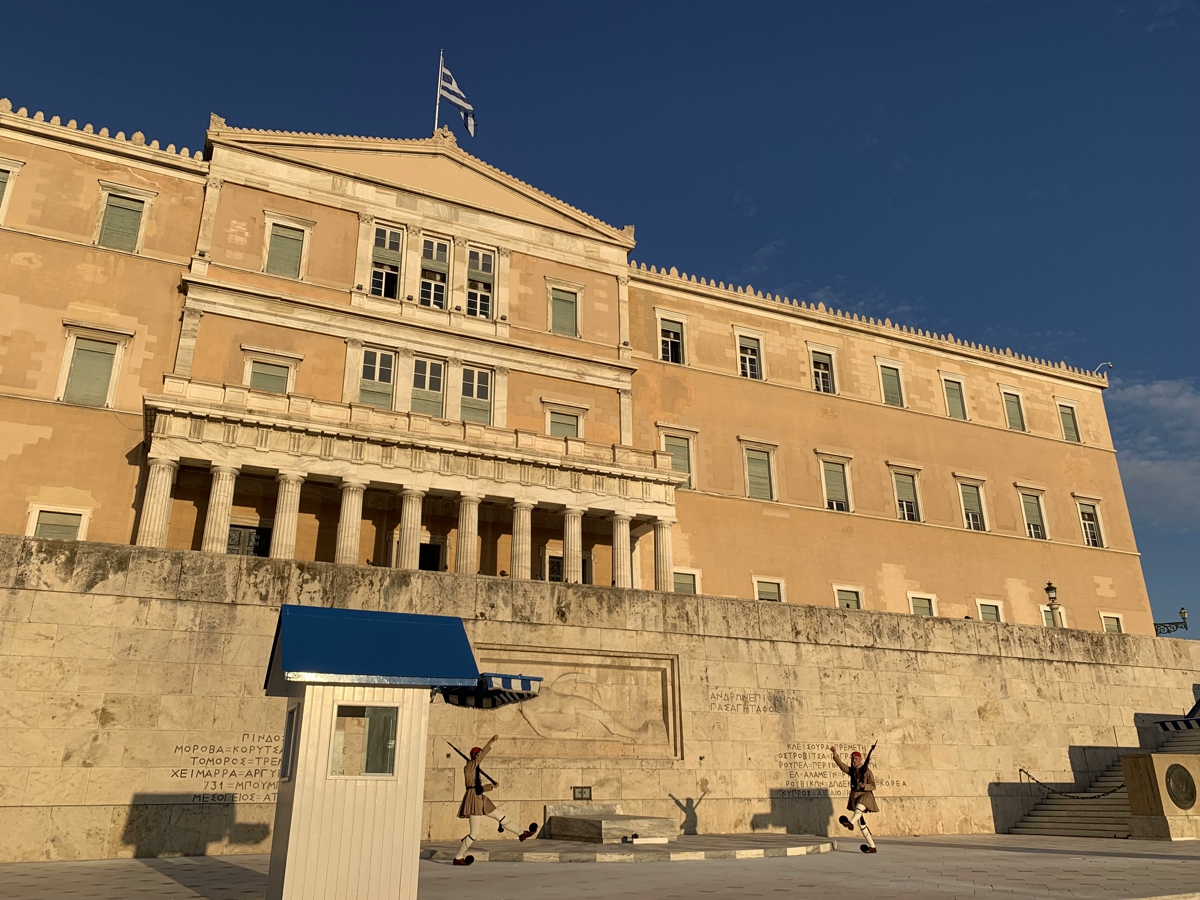
The biggest celebration in Greece happens in Thessaloniki, with a student and military parade and many officials attending. In Athens and all other cities of Greece, there are student parades and an all-over festive feel.
Free admission to Archaeological sites and Public Museums
On Oxi Day, admission to archaeological sites and public museums around Greece is free.
This includes the Acropolis, Ancient Agora, Ancient Delphi, Ancient Mycenae, and Ancient Epidaurus.
In addition, you can visit the Acropolis Museum, National Archaeological Museum, or the Byzantine Museum free of charge.

